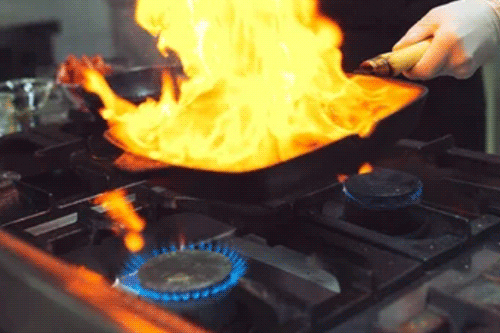Hospitality industry calls for better engagement over gas to electricity transition

The Federal government’s deal with the Greens to compel Australians to move away from gas stoves to full electric has divided the hospitality industry.
The deal with the Greens would force households and businesses to stop using gas stoves and replace them “cleaner and cheaper” appliances.
It will not only be a costly move at a time when households businesses are struggling to make ends meet, but some in the hospitality industry say it will also have an effect on quality.
CEO of the restaurant and Catering Industry Association Suresh Manickam sat down with Sky News recently to discuss the issue, saying that while it did take the industry by surprise, it should have been expected considering the noise currently being made by local governments.
Manickam said there has been a lot of noise from the City of Sydney in particular, which has led to other councils jumping on the replacement bandwagon including Paramatta and Waverley councils.
Victoria and the ACT has also made noise.
The hospitality industry claims it has not been consulted about any move to transition from gas to electric.
“There has not been at all a consultation with the sector in in relation to this,” Manickam told Sky News.
“You'll appreciate that it takes a lot of time and also a lot of money to change over.”
Further to this, Manickam said, “If the government is seeking for the industry to change over, it costs money and there needs to be discussions about packages to subsidise, to educate and to inform the sector in terms of what is required.
“Just on those costs, I mean how much are we talking to switch from a gas stove to Electric. When you have a look at some of these commercial cookeries and commercial kitchens we're talking about tens of thousands of dollars.
“It also needs to be understood that there are a lot of cooking styles at the moment that require gas. One of them is flash frying in terms of Woks and tandoors. Steaks are grilled. So, the idea that you could switch over immediately is ill thought out.”
Manickam said that having consulted some chefs, the length of time it takes to cook has also been disregarded.
It takes longer to cook on an electric stovetop as it does with gas.
The quality of the food could also be in danger, with authentic flavours of particular cooking styles lost.
Manickam is calling on meaningful engagement with the industry ahead of the switch and to bear in mind all of the issues that will arise including that induction cooking could see venues having to get rid of ceramics and glass crockery as it isn’t compatible.
Then there’s not just the cost of the cooking implements, but the wiring as well.
There also needs to be substantial education provided.
“It is not as simple as turning around and saying ‘alright fine, just because you can cook on gas you can cook with electricity. The two are not the same,” Manickam told Sky News.
He said costs will inevitably be passed onto consumers and customers.
“The only way to recoup these costs is to obviously pass it on to the to the dining public and at the moment, it is the case that the industry is facing extraordinary costs in terms of energy.
“We're all having a cost of living squeeze and the cooking and hospitality
industry is no different. So, I think it's it is only logical then that these costs will be passed on. Bear in mind that the when these costs are passed on this is not profit gouging it's simply recouping costs.”
Manickam said the industry is not opposed to change. However consultation is needed to make the transition fair for everyone.
Jonathan Jackson, 4th September 2023







